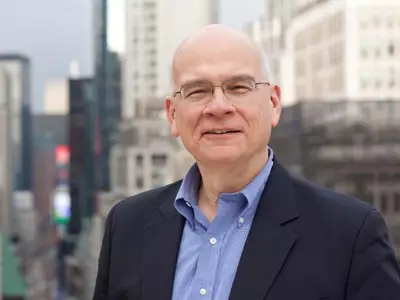
Struggle: Thy Will Be Done
We need every bit of help we can get to learn to pray, “Thy will be done,” because we’re going right into the teeth of our culture.
The essence of American culture is the belief that the more free we are to decide for ourselves, the happier we’ll be. But Jesus Christ says every time you pray to God, you need to say to him, “Thy will be done.” That goes right against probably everything you’ve been taught in our culture.
To understand this phrase, we need to see that when Jesus himself prayed it, he was in the midst of terrible agony. Let’s reflect on 1) the magnitude of that agony, 2) the immediacy of that agony, and then 3) how that helps us understand what it means to pray, “Thy will be done” in a life-transforming way.
This sermon was preached by Dr. Timothy Keller at Redeemer Presbyterian Church on October 19, 2014. Series: The Prayer of Prayers. Scripture: Matthew 26:36-46.
Today's podcast is brought to you by Gospel in Life, the site for all sermons, books, study guides and resources from Timothy Keller and Redeemer Presbyterian Church. If you've enjoyed listening to this podcast and would like to support the ongoing efforts of this ministry, you can do so by visiting https://gospelinlife.com/give and making a one-time or recurring donation.
Featured Offer
In Matt Smethurst’s new book "Tim Keller on the Christian Life", he distills Dr. Keller’s teachings on prayer, suffering, friendship, vocation, and more into practical wisdom for navigating everyday life.
"Tim Keller on the Christian Life" is our way to say thanks for your gift below to help share the transformative power of the gospel with more people.
Past Episodes
 Learn How
Learn How
Featured Offer
In Matt Smethurst’s new book "Tim Keller on the Christian Life", he distills Dr. Keller’s teachings on prayer, suffering, friendship, vocation, and more into practical wisdom for navigating everyday life.
"Tim Keller on the Christian Life" is our way to say thanks for your gift below to help share the transformative power of the gospel with more people.
About Gospel in Life
About Tim Keller
Timothy Keller is the founding pastor of Redeemer Presbyterian Church in Manhattan, which he started in 1989 with his wife, Kathy, and three young sons. For 28 years he led a diverse congregation of young professionals that grew to a weekly attendance of over 5,000.
He is also the Chairman & Co-Founder of Redeemer City to City (CTC), which starts new churches in New York and other global cities, and publishes books and resources for ministry in an urban environment. In 2017 Dr. Keller transitioned to CTC full time to teach and mentor church planters and seminary students through a joint venture with Reformed Theological Seminary's (RTS), the City Ministry Program. He also works with CTC's global affiliates to launch church planting movements.
Dr. Keller’s books, including the New York Times bestselling The Reason for God and The Prodigal God, have sold over 2 million copies and been translated into 25 languages.
Christianity Today has said, “Fifty years from now, if evangelical Christians are widely known for their love of cities, their commitment to mercy and justice, and their love of their neighbors, Tim Keller will be remembered as a pioneer of the new urban Christians.”
Dr. Keller was born and raised in Pennsylvania, and educated at Bucknell University, Gordon-Conwell Theological Seminary, and Westminster Theological Seminary. He previously served as the pastor of West Hopewell Presbyterian Church in Hopewell, Virginia, Associate Professor of Practical Theology at Westminster Theological Seminary, and Director of Mercy Ministries for the Presbyterian Church in America.
Contact Gospel in Life with Tim Keller
support@gospelinlife.com
https://gospelinlife.com/





